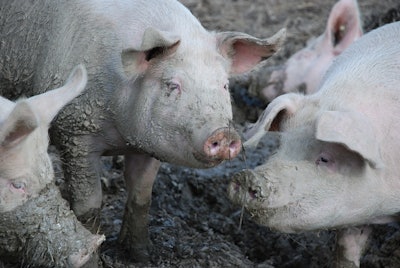
China Pork Production Seen Expanding In 2021
Pork production in China is expected to expand after 2020 as the country recovers from African Swine Fever (ASF).
China, the world's largest pork producer, is grappling with African Swine Fever, which has spread across much of the country in the past year. There is no cure or vaccine for the disease. ASF is a deadly virus for pigs but cannot be transferred to humans.
The United National Food and Agriculture Organization (FAO) has estimated that Chinese pork output could decline by 5% this year, while imports were forecast to rise to almost 2 million tonnes from an average 1.6 million tonnes per year in 2016-2018.
Chinese tariffs against U.S. supplies from the trade dispute should benefit demand for imports from Brazil, Canada and the European Union.
What It Means for the U.S. Farmer: At FBN we reserve a certain amount of skepticism about claims from China and about China hog production as it pertains to ASF. Compared to other private and government sources the FAO numbers look small. We believe that at some point the mortality rates from ASF in China should stabilize but until that point is reached, the U.S. pork exports to China will struggle as the current 25% tariff structure on U.S. pork is prohibitive.
Ethanol Not Included in 2020 U.S. Biofuel Production Increases
The U.S. Environmental Protection Agency has proposed increasing the volume of biofuels that refiners must blend into their fuel annually to 20.04 billion gallons in 2020, from 19.92 billion gallons in 2019.
Convention biofuel production, primarily ethanol, is estimated at 15 billion gallons and is unchanged from 2019.
Advanced biofuels production is at 5.04 billion gallons up from 4.92 billion in 2019.
The 2021 biodiesel mandate is 2.43 billion gallons and is unchanged from 2020. The EPA sets biodiesel mandates a year in advance.
The EPA is responsible for setting biofuel blending requirements for the refining industry as part of the Renewable Fuel Standard (RFS).
The proposed changes to the RFS mandate is currently under review by other government agencies.
What It Means for the U.S. Farmer: We believe that the changes to the RFS for 2020 and 2019 should have minimal impact on the U.S. producer of row crops. The Unchanged volume requirements for ethanol and biodiesel, vegoil, should keep the demand structure close to unchanged for the 2019/20 marketing years. At FBN we are also monitoring the RIN market and biofuel production waivers which have been hotly contested by the U.S. farmer this year.
The risk of trading futures, hedging, and speculating can be substantial. FBN BR LLC (NFA ID: 0508695)










